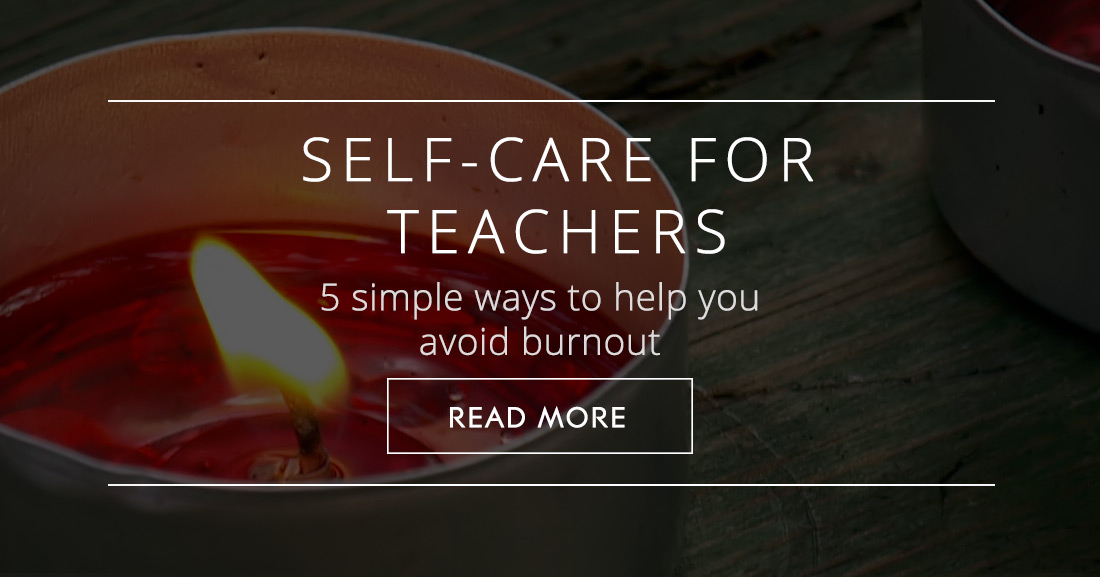The 9 Best New School Year’s Resolutions for ESL Teachers


I’m not talking about the stayed-up-too-late-binge-watching-the-Walking-Dead kind of tired. I’m talking the I-love-my-job-but-I-just-really-need-some-time-away-from-it kind of tired. In other words, burnout. We all hit a point of burnout at some point in our teaching career, whether it’s once every decade or each year a month before school ends. It’s natural, and it’s not something you need to be ashamed of. Once you can get past the shame and admit, at least to yourself, that you need a break, you can begin taking care of yourself. Self-teacher-care is important for several reasons including dealing with burnout. So here are some ideas on how to give yourself a boost the next time you need it.
We all need someone to talk to in both the good times and the rough times. It will help you avoid burnout if you have someone in your life who you can lay it all out to. Whether that person is a friend, a spouse, a friendly Starbucks barrista, a nurse at a walk-in clinic or has some other connection to you, you need someone who will lend you an ear when frustrations are high. The best listeners are those who will let you talk, commiserate with you, and not try and solve your problem with unsolicited advice. If you happen to know someone in the field of education that will lend and ear, even better. They will be able to relate to what you are going through and perhaps share some of their own experiences. Then you’ll be able to lend an ear when they need to blow off some steam, too.
Did you know that people who write are clinically proven to deal with stress better? You probably know what I’m talking about. At some point you’ve probably written a letter or email to someone you never intended to send, but didn’t it feel good just to get your frustration out on paper? You can have the same sigh of relief when it comes to your teaching life. Just sitting down with some paper and a pen can let the stress flow from your spirit to the page leaving you lighter and more prepared to deal with your teaching life. You don’t have to stop at a pen and paper, either. If you’re so inclined, consider sharing your experiences on a blog. Not only is it a good way to get out frustrations, it can also help you connect with other teachers in similar situations making a way for a relationship like the one mentioned in point one.
It’s easy to fall into the trap of thinking about school all the time, especially if you are teaching a new class for the first time. But you know that saying: All work and no play makes Jack a dull boy. It also contributes to teacher burnout. For that reason, it’s important to spend some time on a regular basis on something you enjoy other than teaching. In other words, engage in a hobby. It might be hiking when the weather is warm and crocheting blankets when it’s too cold to go outside. You might play soccer with your kids or meet up with a group of painters once a month. Whatever it is that interests you, that is where you should spend your time. Some of it at least. And even if teaching is your true passion, you still need to take some brain time away from your first love and refresh with another activity. So join a book club, find a meetup group, or cultivate a garden. Putting some of your energy into other activities will give you more energy for your teaching.
If you want to successfully deal with life’s difficulties, it helps when you can find the humor in the situation. Be able to laugh at yourself when you make mistake or when something awful happens. When I was teaching overseas, I thought it was nice that my students kept leaving oranges on my desk. How thoughtful they were. It wasn’t until later that I learned in their culture you left someone an orange when you thought they looked unhealthy. I had to laugh and say I guess my mirror wasn’t lying after all. Rather than taking offense, I found the humor in the situation and released the tension that way. You’ll have your moments, too. We all do. So make a point of seeing the funny side of things and go with that. Being able to laugh at yourself and your circumstances really is a virtue.
Life is full of seasons. Not only do we see the cycles of fall, winter, spring, and summer every year. We also see cycles of starting something new, reaching our peak, and moving on. As much as we might hate to admit it, sometimes burnout is a signal that it’s time to leave our current position and start something new. We can still love what we do. We can still love our students, our school, our community. We’ve given our hearts and souls to this job, so it’s natural that we would leave part of ourselves behind when it’s time to teach another class or grade level, change the material we’ve been using for so long, transfer to another school or another program, or make even bigger changes in our lives. Change is hard, and we all avoid it to one degree or another. But if you are feeling burned out and just can’t seem to get back that spark, you might need to consider some kind of a change.
But we can take measures to ease its effects on us and also know when it’s a sign of something bigger, a change that needs to take place. Ultimately, avoiding burnout comes down to balance. Balancing our time, our interests, and our attitudes. When we can find the sweet spot on those spectrums, that’s when we will be at our very best both inside the classroom and out.